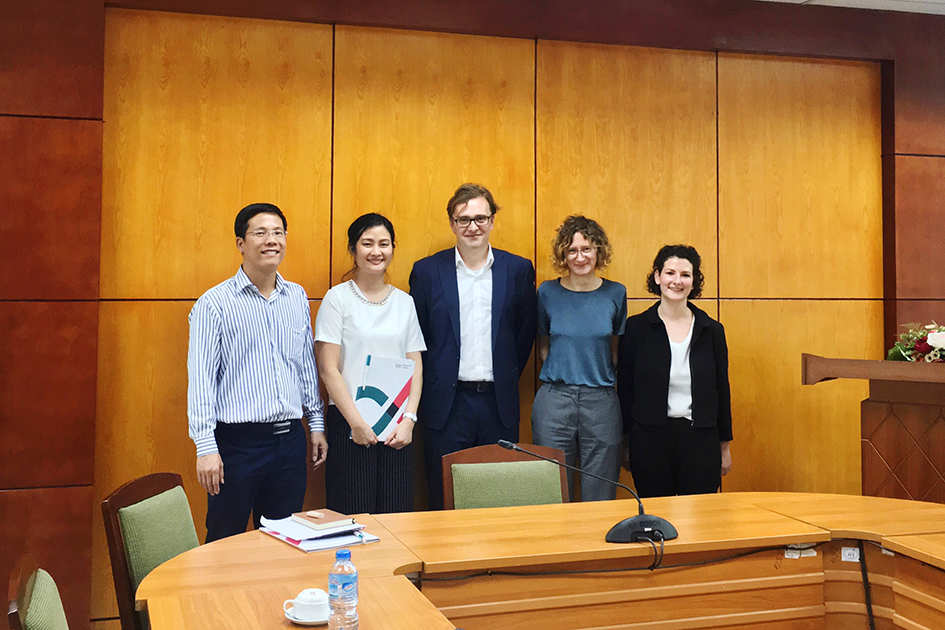Establishing Industrial Symbiosis by Means of Intelligent Waste Data
Research Unit Circular Economy of the Wuppertal Institute travelled to Vietnam for cooperation discussions

Research Unit Circular Economy of the Wuppertal Institute travelled to Vietnam for cooperation discussions


Within the scope of the definition project "Digital marketing platforms as a tool to support industrial symbioses in Vietnam", the Research Unit Circular Economy of the Wuppertal Institute travelled to Hanoi in Vietnam from 3-12 October 2017. There, the Head of the Research Unit Dr. Henning Wilts and the Research Fellows Susanne Fischer and Anne Müller met with representatives of international and Vietnamese organisations which are active in the support of industrial symbiosis projects. Overarching goal of the meetings was to find collaboration opportunities with interested partners from industry and science for a planned co-operative project under the scope of the Federal Ministry of Education and Research (BMBF).
Over the past decades, Vietnam has undergone a phase of enormous economic development. At present, several hundred industrial zones are operating in Vietnam, and they contribute to annual growth rates of over six per cent. However, this also entails enormous amounts of industrial waste: around 8,000 tonnes of industrial waste are generated every day – corresponding to almost three million tonnes per year. Although this waste is mostly collected, it is either incinerated or landfilled. "This is among other things due to comparatively low waste disposal fees. There are hardly any economic incentives to reduce waste. In addition, when it comes to available technologies, recycling remains behind its potential; material inputs for production processes are thus mainly obtained from primary raw materials," explains Susanne Fischer. In order to achieve recycling – and more importantly, an industrial symbiosis – data is required which can provide information on available waste amounts and waste streams. But according to Fischer, this data is missing, both at the company level and the national level, like for example in the form of annual waste statistics.
This is the point where the planned co-operative project begins: Three selected industrial parks are planned to be equipped with a specially developed web-based IT tool. This application would allow an uncomplicated and timely detection of all waste streams. Susanne Fischer adds: "In this way, precisely this required overview of waste quantities and types as well as their composition can be obtained. And moreover, with these data it is possible to develop an accurate picture of the potential of the industrial symbiosis for Vietnam, both in ecological as well as in economic terms. And especially the latter is needed since it is likely to be a driver for local companies to invest in recycling."
With the establishment of this tool, the automated collection of waste data will be initiated in several pilot projects and later on a wider scale. As launched by the Vietnamese government in 2012 in a national strategy and an action plan to promote "green growth", this would constitute a substantial contribution to a more sustainable use of natural resources.
Talks took place with United Nations Industrial Development Organization (UNIDO), International Finance Corporation (IFC), Vietnam National University Hanoi (VNU), Asian Institute of Technology in Vietnam (AICTV), Institute of Regional Sustainable Development (IRSD) as well as Centre for Creativity and Sustainability (CCS).
